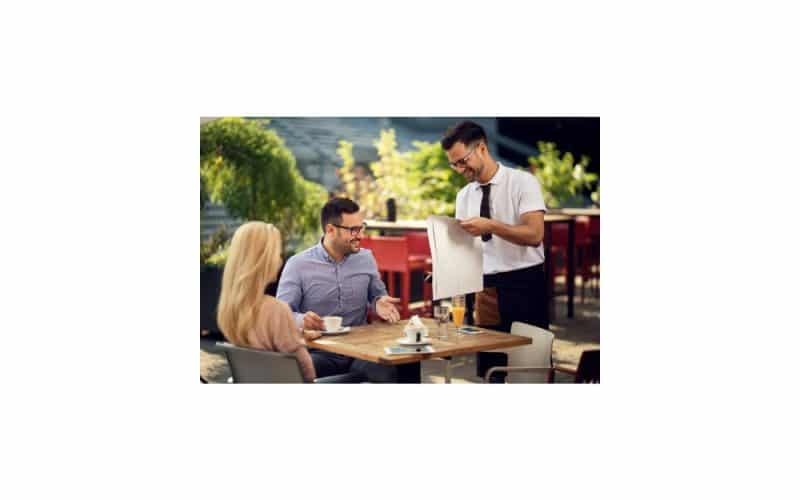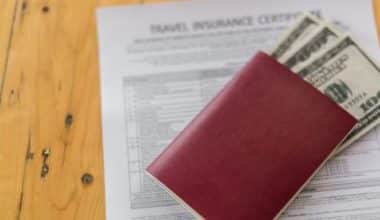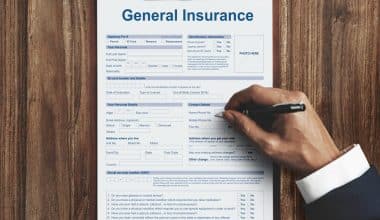Owning a restaurant is a challenging but rewarding way to make a living. As you build your restaurant business, it is important to have the right insurance in place to protect your investment.
Whether your focus is fast food or fine dining, no restaurant business is immune from risk. Insurance policies designed for restaurant owners provide financial protection from food spoilage, kitchen fires, and other common issues.
You can get restaurant insurance by buying a business owners’ policy (BOP), which packages together three essential coverage types for less cost than buying them separately:
- Property insurance
- Business interruption insurance
- Liability protection
From there you can add customized coverage for your restaurant business.
What is Restaurant Insurance?
Restaurant insurance typically represents a collection of small business insurance policies that each protect against different risks inherent to the restaurant industry. Depending on the type of restaurant you have, you may need some coverages and not others.
For example, a sandwich shop offering delivery will have different needs than a pub that serves beer.
What does restaurant insurance cover?
General liability insurance is perhaps the most important coverage in a restaurant insurance policy. Because your customers are consuming foods and beverages, you’re always at risk of being sued if someone says your food made them sick.
Liability insurance also covers you if someone is injured in your restaurant, or if your business is legally liable for property damage to someone else. The liability portion of a BOP can also provide you with funds to pay a settlement or court judgment and can cover your lawyer fees.
A BOP also provides commercial property insurance. This covers damage to the restaurant building if you own it, and other property, such as kitchen equipment.
Other coverage types that you may want for restaurant insurance are:
- Business interruption insurance. If your business cannot open due to a problem covered by your policy (like a fire), business interruption insurance helps replace your lost income and other expenses, such as relocation costs to a temporary location.
- Commercial crime insurance. Crime-related problems such as burglary, forgery, fraud (including computer fraud), robbery and employee dishonesty are typically not covered by commercial property insurance. Commercial crime insurance covers these types of problems and can help your restaurant recover from crime-related financial losses.
- Extra expense insurance. Pays expenses, such as rent for temporary quarters.
- Food contamination endorsement. If your restaurant is shut down by a health board due to a foodborne illness outbreak, this covers expenses such as lost income, replacing contaminated food, medical tests and vaccinations for employees, equipment cleaning, and advertising to restore your restaurant’s reputation.
- Food spoilage coverage. Covers the costs of food you lost to an incident beyond your control, such as a long power outage or refrigerator equipment failure.
- Liquor liability coverage. Liquor liability insurance covers bodily injury or property damage caused by a drunk customer who was served the liquor at your business.
- Mechanical breakdown. Covers the cost of repairing the breakdown to everything from your boilers and piping to electrical machines.
- Workers compensation insurance. If your employee gets sick or injured while performing job-related duties, workers’ compensation insurance helps cover the cost of expenses such as medical bills, physical therapy, lost wages, disability and death benefits. Most states require businesses to buy workers comp, even if you only have one employee.
Insurance policies for restaurants
Here are common coverages that many restaurant owners need.
Business Owner’s Policy
A business owner’s policy includes general liability insurance and commercial property insurance in a bundled package. It also often includes business interruption insurance. It is designed for small to midsize businesses. You can also add on coverages to a BOP, such as equipment breakdown insurance.
General Liability Insurance
Commercial general liability insurance helps pay for your legal fees and judgments against you if a customer files a lawsuit for non-professional negligence. That includes property damage—for example, a waiter spilling wine on a guest’s fur coat—along with physical injury, such as slip-and-fall accidents. It also covers the medical bills incurred by the injured customer.
It also typically covers lawsuits related to advertising claims, such as libel, slander, copyright infringement, plagiarism, and malicious prosecution.
You should check that your general liability insurance includes product liability as well, which helps cover lawsuits related to food poisoning.
Workers’ Compensation Insurance
Workers’ compensation insurance is required in most states for businesses with more than a certain number of employees. In some states, you’re required to carry it even if you have only one employee.
Workers’ compensation insurance helps pay for your employees’ medical bills and lost wages if they become injured or ill as a result of performing their job duties. At the same time, it typically protects the restaurant owner from employee lawsuits.
Commercial Property Insurance
Commercial property insurance helps pay for repairs or rebuilding if your restaurant’s building or its contents, such as the kitchen equipment, are damaged by a covered loss. Common risks that are covered include fire and smoke, wind and hail, vandalism, some types of water damage, building collapse, and damage from aircraft or vehicles.
If someone drives a car into your storefront, that would be covered, as would water damage from a leaking sprinkler. Earthquakes and floods are typically not covered, however, so some restaurant owners purchase separate policies for those risks.
If you rent the space, you can often exclude the structure itself from your policy and only cover your equipment, but you should find out what the owner’s policy covers first.
Business Interruption Insurance
Business interruption insurance helps replace your lost income after a covered loss. For example, if you were forced to shut down operations to repair damage from a windstorm, business interruption insurance would cover your lost income so you could pay your mortgage or lease, any due taxes or loan payments, and employee payroll.
Business interruption insurance is often included as part of a business owner’s policy (BOP).
Inland Marine Insurance
If you have equipment or inventory that you transport off-premises, you’ll also need inland marine insurance. It covers business property that is transported, shipped, or stored off-site. If your property stays at your business location, you shouldn’t need this coverage.
Spoilage Insurance
If the food at your restaurant spoils due to a power outage or equipment breakdown, spoilage insurance pays to replace it.
Equipment Breakdown Coverage
If equipment such as your air conditioning or oven fails, your business operations could be forced to stop. Equipment breakdown insurance covers mechanical, electrical, and pressurized equipment breakdowns plus refrigeration and A/C units and computers. It may also cover lost income during repairs and the cost to replace food that spoiled as a result of the breakdown.
Food Contamination Insurance
Food contamination insurance helps pay for lost food due to contamination or equipment cleaning. If your restaurant is shut down, it can also help replace your lost net income.
Liquor Liability Insurance
Liquor liability insurance helps pay for legal costs when your restaurant is held liable for serving someone alcohol. It also covers damage to your property and medical bills for an alcohol-related incident.
Lawsuits regarding assault and battery or property damage by an intoxicated person, as well as drunk driving incidents, are also covered under a liquor liability insurance policy.
Commercial Auto insurance
If your restaurant owns a truck or other vehicles that it uses for deliveries or other business activities, you’ll need commercial auto insurance. It typically includes bodily injury and property damage liability, comprehensive and collision coverage, and often medical payments and uninsured motorist coverage for your commercial vehicles.
You’ll need commercial auto insurance if you have a work vehicle. It includes liability coverage, which pays for property damage and injuries you accidentally cause to others. You can also get coverage for injuries to you and your passenger as well as coverage to repair or replace your work car if it’s damaged in a car accident or other types of problems, like theft or severe weather.
Cyber liability insurance
If your restaurant is the victim of a cyber attack, such as a data breach or cyber extortion, cyber liability insurance helps cover expenses such as data recovery, investigative services, lost income and lawsuits due to privacy breaches.
Employment practices liability insurance
Protects your restaurant from employment-related claims, such as discrimination, harassment and wrongful termination. Employment practices liability insurance should not be confused with employer’s liability insurance.
Hired and Non-Owned Auto Liability Insurance
If you send an employee in their personal vehicle to pick up supplies for your restaurant, that is considered business use of a vehicle. Your business could be responsible for damages if the driver were in an accident. If you encounter situations where vehicles that your business does not own are being used for your business operations, or if you rent or lease vehicles, you’ll need a hired and non-owned auto liability policy.
Cost of restaurant insurance
The annual premium you’ll pay for restaurant insurance depends on the size of your business, your location, what you’re serving, and who you’re serving. It also depends on the types of coverage you need for your restaurant.
For a package that includes a business owner’s policy, liquor liability insurance, and workers’ compensation, most restaurants can expect to pay around $4,000 per year. But some restaurant owners who need commercial auto coverage may pay more than that. On the other end of the spectrum, a business package with coverage for a rented space can start as low as $299 annually.
How to get restaurant insurance
It’s easy to get insurance coverage for your restaurant if you have your business information on hand. Insurance applications will ask for basic facts about your small business, such as revenue and number of employees.
You can buy a policy online and get a certificate of insurance in three easy steps:
- Complete a free online application
- Compare insurance quotes and choose policies
- Pay for your policy and download a certificate
Why is restaurant insurance important?
If you own a restaurant, the odds are good that it is a main—or only—source of income in your life. Imagine an event that caused the restaurant to suddenly shut down or be sued: Could you financially survive? If so, for how long?
With proper business insurance, you can financially recover in the wake of a disaster, such as a fire that destroys your business.
In addition, restaurant insurance provides the funding to keep your business afloat if someone sues you.
Recommended Articles
- BUSINESS LIABILITY INSURANCE COST: 2023 Cost Guide
- Business Owner Policy: What It Is & What It Covers
- Medicare Demystified – Making Sense of Your Coverage Options
- BASIC LIFE INSURANCE: What Is It & How Does It Work?
- Small Business Liability Insurance: How Does It Work?
- WHAT IS A COMPREHENSIVE COVERAGE: What It Is & What It Covers
References






